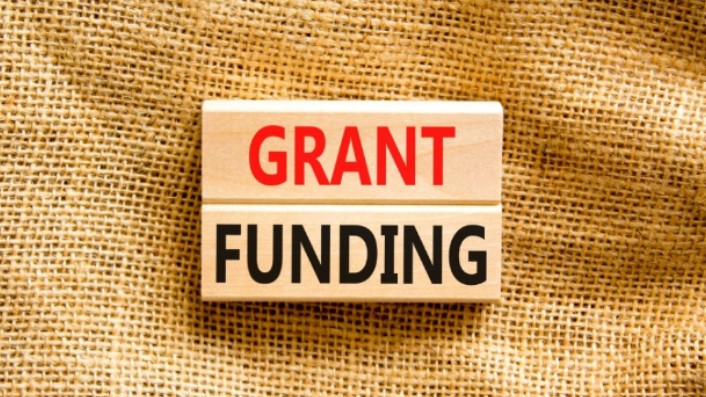Federal vs. Private Health Grants: Key Differences
Health grants are crucial for funding healthcare initiatives, research, and community health programs. They can come from federal and private sources and have distinct characteristics, advantages, and application processes.
Understanding the differences between federal and private health grants can help organizations and individuals identify the most suitable funding sources for their needs.
What Are Federal Health Grants?
Federal health grants are funds the U.S. government or its agencies provide to support public health programs, medical research, and healthcare infrastructure. They are often part of government initiatives to improve public health outcomes on a vast scale.
Key Characteristics of Federal Health Grants
- Funding Source: Issued by government agencies like the NIH, CDC, and HRSA.
- Focus Areas: Public health initiatives, medical research, disease prevention.
- Application Process: Highly structured with specific guidelines and deadlines.
- Reporting Requirements: Strict compliance and progress reporting.
- Eligibility: Often targeted toward public institutions, non-profits, and research entities.
What Are Private Health Grants?

Non-governmental organizations, foundations, corporations, or individual philanthropists fund private health grants. Depending on the funder’s objectives, these grants may focus on specific causes or regions.
Key Characteristics of Private Health Grants
- Funding Source: Provided by private foundations like the Bill & Melinda Gates Foundation.
- Focus Areas: These can vary widely and are often targeted toward niche health issues.
- Application Process: More flexible compared to federal grants.
- Reporting Requirements: This may vary but can be less rigid than federal grants.
- Eligibility: Open to a broader range of applicants, including small organizations and individuals.
Key Differences Between Federal and Private Health Grants
Here’s a detailed and structured version of the Key Differences Between Federal and Private Health Grants:
Funding Source
- Federal Health Grants: Funded by U.S. Government Agencies, like the National Institutes of Health (NIH), Centers for Disease Control & Prevention (CDC), Health Resources & Services Administration (HRSA), & Substance Abuse and Mental Health Services Administration (SAMHSA).
- Private Health Grants: Funded by Private Foundations (e.g., Robert Wood Johnson Foundation, Gates Foundation), Nonprofits (e.g., American Cancer Society), and Corporations (e.g., pharmaceutical companies).
Funding Priorities
- Federal Health Grants: Broad focus on national public health needs, advancing scientific knowledge, improving healthcare access and delivery, and addressing specific health disparities. Often aligned with national health agendas and strategic plans.
- Private Health Grants: Diverse, often focused on specific diseases, populations, geographic areas, or areas of interest to the funder (e.g., children’s health, mental health, specific research areas). It may reflect the founder’s or organization’s values.
Application Process

- Federal Health Grants: Extremely rigorous, highly structured, detailed proposals (often hundreds of pages), strict adherence to guidelines and deadlines, complex budget justifications, often requires preliminary applications (e.g., Letters of Intent).
- Private Health Grants: Varies significantly depending on the funder. Some have formal, detailed applications similar to federal grants, while others may prefer letters of inquiry, brief proposals, or even informal conversations. It can be more relationship-based.
For more information on health and medical grants for individuals, including eligibility criteria, application processes, and available funding opportunities, visit https://www.individualgrants.info/. This resource provides comprehensive guidance to help individuals access the financial assistance they need for medical care and health-related projects.
Review Process
- Federal Health Grants: Extensive peer review by panels of experts in the relevant field, with emphasis on scientific merit, impact, and feasibility. Multiple review stages are common.
- Private Health Grants: The review process varies. It may involve a review by program staff, board members, or external experts. Criteria may include alignment with the funder’s mission, community impact, and program sustainability.
Reporting Requirements
- Federal Health Grants: Highly stringent, detailed financial and programmatic reports, strict accountability for using funds, regular progress reports, and often independent audits. Emphasis on demonstrating outcomes and impact.
- Private Health Grants: These are less stringent than federal grants but require regular reporting to demonstrate progress and appropriate use of funds. Reporting frequency and format vary depending on the funder.
Funding Amounts
- Federal Health Grants: Typically large, often multi-year awards supporting large-scale research projects, infrastructure development, or comprehensive programs.
- Private Health Grants: Varies considerably, from small grants to significant awards. Generally smaller than federal grants, but some large foundations can provide substantial funding.
Accessibility of Information
- Federal Health Grants: Information on grant opportunities, application guidelines, and funded projects is publicly accessible through Grants.gov, agency websites, and databases like NIH RePORTER. There is a high degree of transparency.
- Private Health Grants: The information available varies. Some foundations have detailed websites with grant guidelines and application information, while others may require direct contact. This requires more individual research on each funder.
Indirect Costs
- Federal Health Grants: Federal grants typically allow for the recovery of indirect costs (overhead expenses associated with conducting research or running programs), which can be a significant portion of the total award.
- Private Health Grants: Private foundations may or may not allow indirect costs, and their policies vary significantly.
Eligibility
- Federal Health Grants: Specific eligibility criteria based on applicant type (e.g., academic institutions, non-profits, small businesses), project focus, and other factors.
- Private Health Grants: Eligibility criteria vary widely depending on the funder’s priorities. They may include geographic restrictions, specific types of organizations, or a focus on particular populations.
Choosing the Right Grant Source

The best grant source for your project or program depends on several factors:
- Project Focus: Federal grants may be the best option if your project aligns with national public health priorities or requires large-scale funding for basic research. Suppose it is suitable if your project is focused on a specific health issue or serves a particular community.
- Funding Needs: Take into account the amount of money you need. Federal grants typically offer more significant amounts, while private grants may offer smaller, more targeted amounts.
- Application Capacity: Evaluate your capacity to meet the application requirements. Federal grants require extensive documentation and a rigorous application process, while private grants may have simpler applications.
- Reporting Requirements: Consider your ability to meet the reporting requirements. Federal grants have strict reporting requirements, while private grants may be more flexible.
Strategies for Securing Health Grants

Regardless of whether you are applying for federal or private grants, the following strategies can increase your chances of success:
- Thorough Research: Conduct thorough research to identify grant opportunities that align with your project or program.
- Develop a Strong Proposal: Write a clear, concise, and compelling proposal articulating your project’s goals, methods, and expected outcomes.
- Meet Deadlines: Adhere to all application deadlines and submission requirements.
- Build Relationships: Network with potential funders and build relationships with program officers.
- Seek Feedback: Ask colleagues or mentors to review your proposal and provide feedback.
The Bottom Line
Understanding the primary distinctions between private and federal health grants is crucial for successfully navigating the intricate realm of health funding. By carefully evaluating your project’s requirements, investigating potential opportunities, and developing strong applications, you can improve your chances of obtaining the financing required to improve public health.














Post Comment